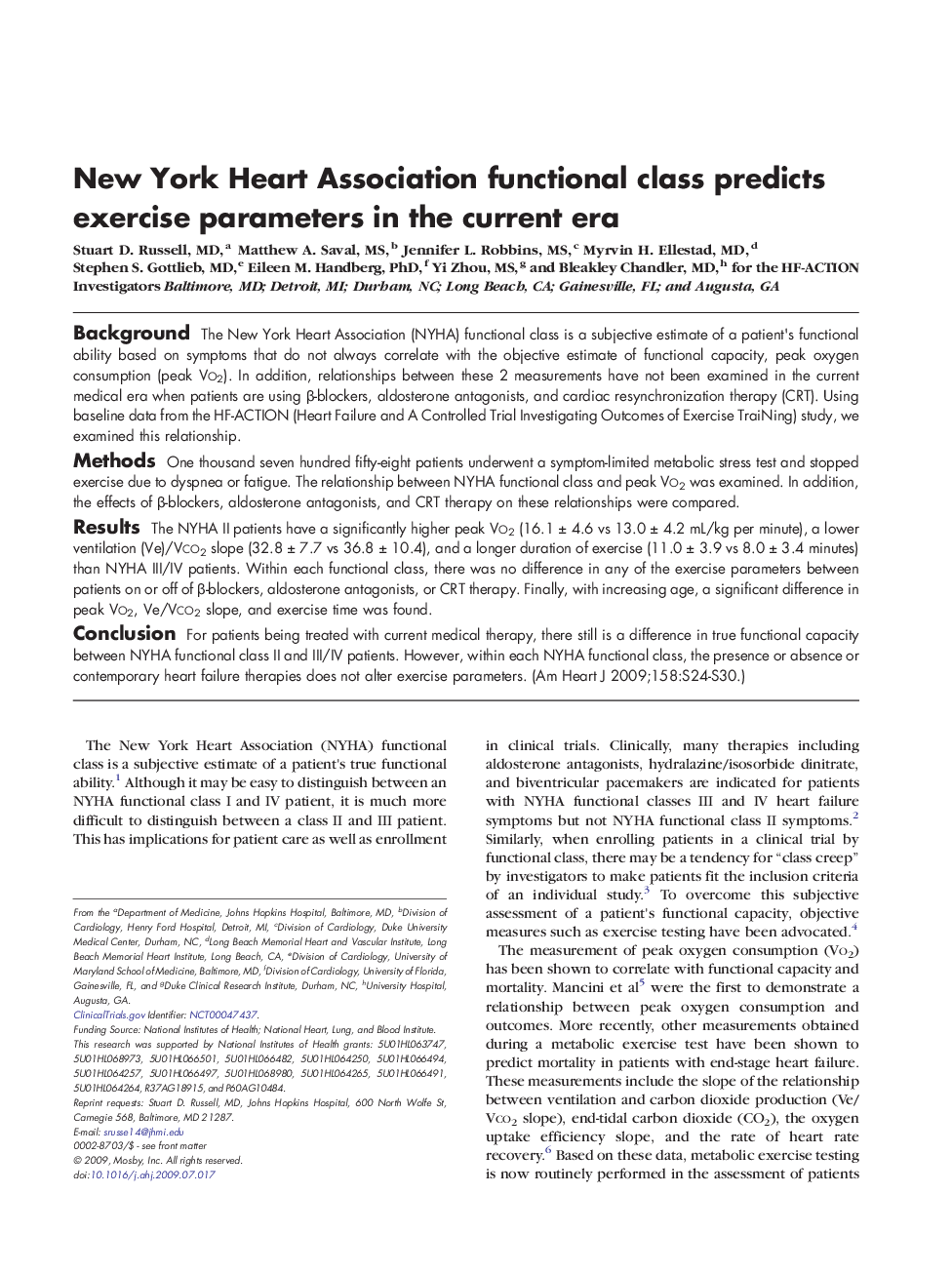| کد مقاله | کد نشریه | سال انتشار | مقاله انگلیسی | نسخه تمام متن |
|---|---|---|---|---|
| 2850561 | 1167790 | 2009 | 7 صفحه PDF | دانلود رایگان |

BackgroundThe New York Heart Association (NYHA) functional class is a subjective estimate of a patient's functional ability based on symptoms that do not always correlate with the objective estimate of functional capacity, peak oxygen consumption (peak Vo2). In addition, relationships between these 2 measurements have not been examined in the current medical era when patients are using β-blockers, aldosterone antagonists, and cardiac resynchronization therapy (CRT). Using baseline data from the HF-ACTION (Heart Failure and A Controlled Trial Investigating Outcomes of Exercise TraiNing) study, we examined this relationship.MethodsOne thousand seven hundred fifty-eight patients underwent a symptom-limited metabolic stress test and stopped exercise due to dyspnea or fatigue. The relationship between NYHA functional class and peak Vo2 was examined. In addition, the effects of β-blockers, aldosterone antagonists, and CRT therapy on these relationships were compared.ResultsThe NYHA II patients have a significantly higher peak Vo2 (16.1 ± 4.6 vs 13.0 ± 4.2 mL/kg per minute), a lower ventilation (Ve)/Vco2 slope (32.8 ± 7.7 vs 36.8 ± 10.4), and a longer duration of exercise (11.0 ± 3.9 vs 8.0 ± 3.4 minutes) than NYHA III/IV patients. Within each functional class, there was no difference in any of the exercise parameters between patients on or off of β-blockers, aldosterone antagonists, or CRT therapy. Finally, with increasing age, a significant difference in peak Vo2, Ve/Vco2 slope, and exercise time was found.ConclusionFor patients being treated with current medical therapy, there still is a difference in true functional capacity between NYHA functional class II and III/IV patients. However, within each NYHA functional class, the presence or absence or contemporary heart failure therapies does not alter exercise parameters.
Journal: American Heart Journal - Volume 158, Issue 4, Supplement, October 2009, Pages S24–S30